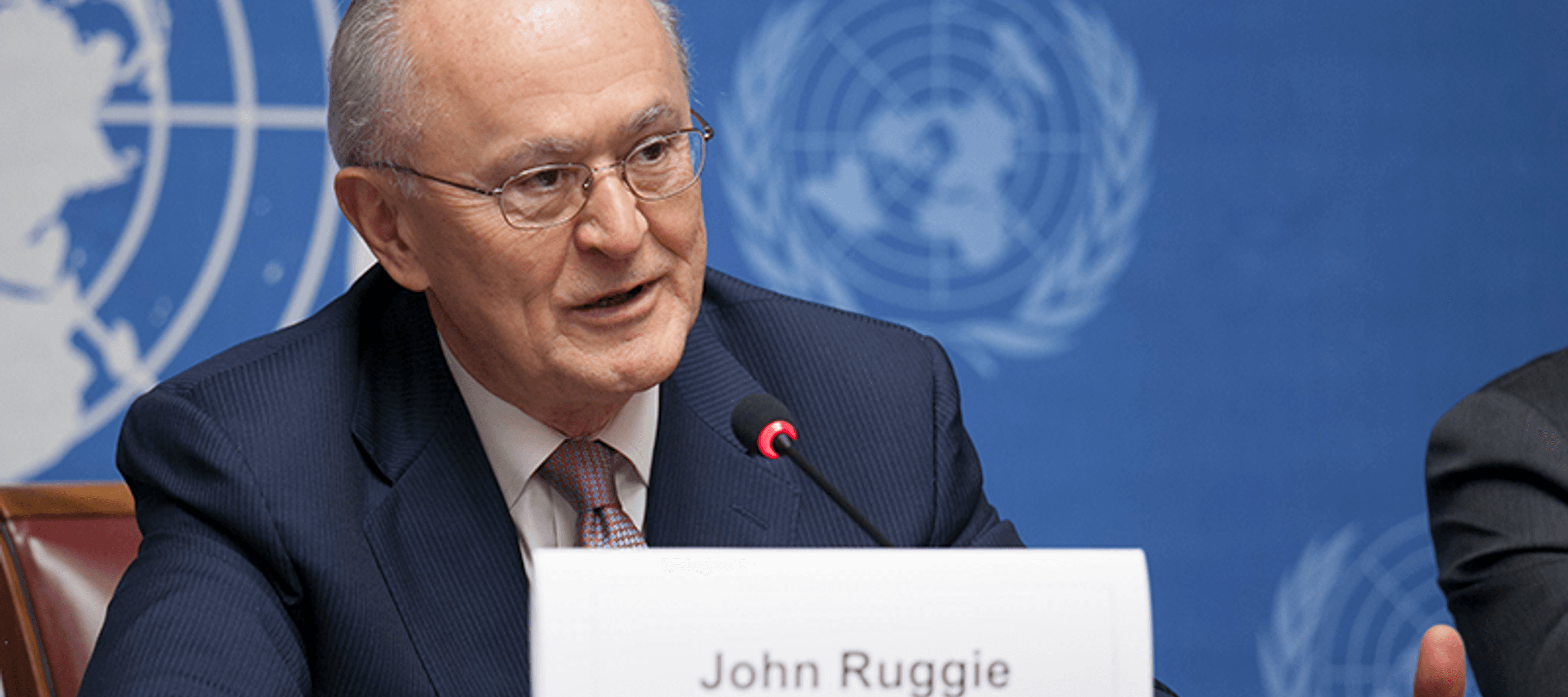10 years of the UN Guiding Principles – IHRB salutes John Ruggie
15 June 2021

The United Nations Guiding Principles on Business and Human Rights (UNGPs) have played a pivotal role over the past decade in advancing understanding and action on the responsibilities of business for respecting human rights around the world.
In marking the 10th anniversary of this foundational framework, IHRB salutes Professor John Ruggie who, in his role as the UN Secretary-General’s Special Representative on Business and Human Rights, worked tirelessly to promote dialogue and engagement among governments, businesses, and civil society, leading to the unanimous endorsement of the UNGPs by the UN Human Rights Council on 16 June 2011.
Professor Ruggie’s efforts during his mandate were critical in providing the evidence-base needed to assess corporate human rights impacts, the risks corporate actions posed, and the responses that became necessary. His emphasis on State obligations for appropriate regulatory and judicial environments, and incentivising good practice and rights-respecting corporate cultures, brought about significant drivers for change. The proliferation of national action plans was the first step; the growing support for mandatory human rights due diligence builds on that. The UNGPs' affirmation of what civil society and human rights groups asserted and knew, that businesses could adversely impact virtually any human right and, therefore, had a responsibility to prevent and mitigate such impacts, established firm foundations upon which all further efforts in this field would build. Attention to company activities and business relationships across value chains, and elevating the importance of access to remedy for abuses, moved the business and human rights agenda unequivocally beyond corporate social responsibility (CSR), making accountability central to the basic expectations of any company – albeit still elusive in reality all too often.
Ten years on, the continuing influence of the UNGPs is clear. While achievements should be celebrated, much work remains. Translating the human rights agenda into clear policies and practices across all industry and geographic contexts continues to require significant shifts in corporate priorities and increased knowledge within and across companies. Governments are only beginning the work to create a “smart mix” of incentives and disincentives needed to ensure that human rights standards are respected by all companies. Broader systemic approaches, including responsible investment, alignment with the UN Sustainable Development Goals, and with strategies to confront the climate emergency, still must fully embrace the importance of human rights.
The UNGPs, and the business and human rights agenda, are more important than ever. IHRB’s report Building a Movement: Reflections on the History and Future of Business and Human Rights sought to take stock of progress made over the past decade, as well as look ahead. The work to make the UNGPs a reality in practice everywhere will and must go on. IHRB is committed to this work, and to collaborating in this rich and diverse ecosystem of actors critical to making respect for human rights part of everyday business.
Image: Flickr/UN Mission in Geneva




